We explain who Socrates was and why he revolutionized the concept of philosophy. In addition, its characteristics and main teachings.
Who was Socrates?
Socrates was one of the most important philosophers in ancient philosophy . He was born in Athens, Greece in 470 BC, the son of a sculptor and a midwife. Therefore, he came from a humble family. This information is important since in their language they will use many of the ways of speaking related to childbirth such as: childbirth, light , giving birth, among others.Socrates was an excellent teacher . In fact Plato was his disciple. Already at the age of 40, Socrates taught on public roads, at banquets, in the agora, etc. Since his teaching was free and oral, he encouraged all listeners to examine their consciences.
Socrates marks a before and after in terms of the conception of philosophy since it is from him that philosophy will begin to be conceived as a philosophy for man.
As a curiosity, it is important to mention that Socrates did not write or publish books . But the writings that exist and address his thought are due to the annotations that his disciples made for him, in particular Plato. Below is a summary of Socrates' thought, his main ideas and contributions to philosophy.
Characteristics of Socrates :
-
Revolution of the concept of philosophy
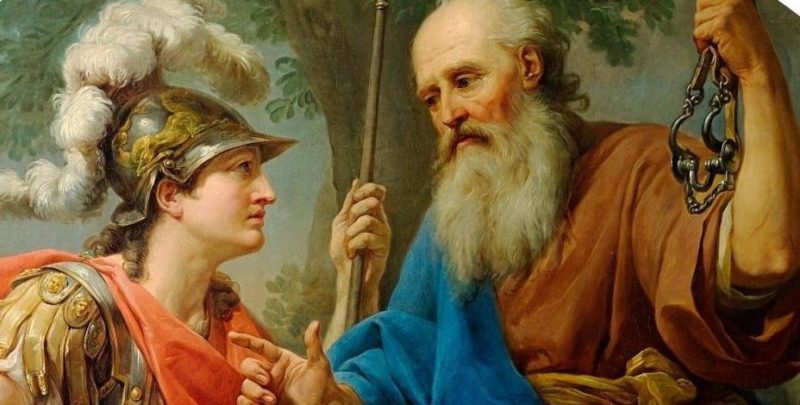 One of the most important contributions of Socrates is that, for him, philosophy should be a practical contribution to the lives of men . For him, then, philosophy should teach knowing how to live. Therefore, this knowledge implies understanding about good and evil so that the individual can approach knowledge.
One of the most important contributions of Socrates is that, for him, philosophy should be a practical contribution to the lives of men . For him, then, philosophy should teach knowing how to live. Therefore, this knowledge implies understanding about good and evil so that the individual can approach knowledge.On the other hand, Socrates breaks with the myths and thoughts of the wise men of that time who believed they had absolute knowledge of things.
Socrates' legacy
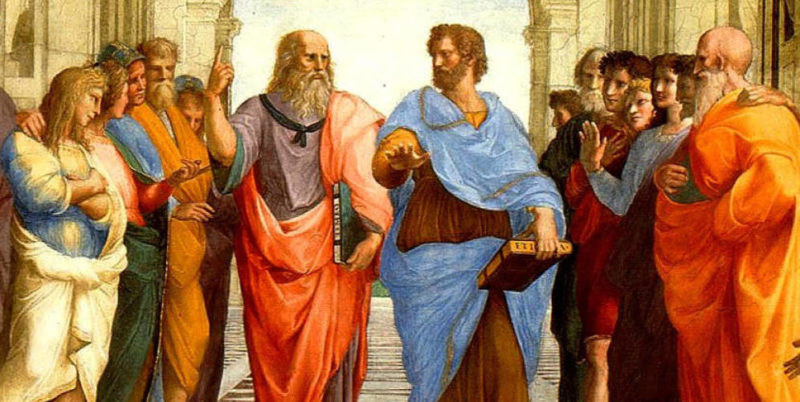
Since Socrates was a philosopher who did not write any of his teachings , those thoughts that are known today are due to the annotations of his disciples, more specifically those of Plato.
The reason that Socrates does not want to leave any writing is because he believed that future readers might confuse what he meant . Therefore, the entire legacy of Socrates will be reflected in Plato's dialogues.
-
the maieutics
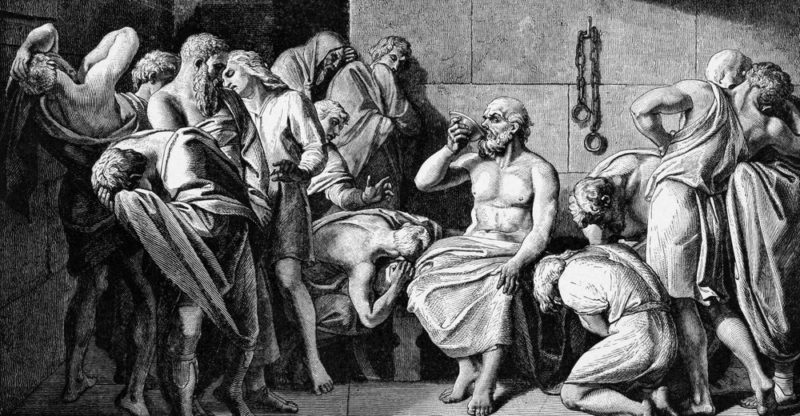 The writings through which the thought of Socrates became known were the dialogues. These were questions and answers between the philosopher and his students . These questions and answers became known as maieutics and are used to this day.
The writings through which the thought of Socrates became known were the dialogues. These were questions and answers between the philosopher and his students . These questions and answers became known as maieutics and are used to this day.This maieutics is a process similar to that of mothers giving birth (childbirth) . So the idea of maieutics is a way to help the listener "give birth to the truth." In other words, maieutics is the art of helping to give birth to ideas . The goal of maieutics is to get to the truth through dialogue.
irony and refutation
Both irony and refutation are necessary steps that must be gone through in all dialogue (maieutics) to reach the truth.
- The irony. It is the way of feigning ignorance regarding knowledge or subject matter.
- The rebuttal. It is, on the contrary, the demonstration (through dialogue) of the contradiction of the person's thought. It is, through refutation, that the person's own ignorance becomes evident.
-
The doubt
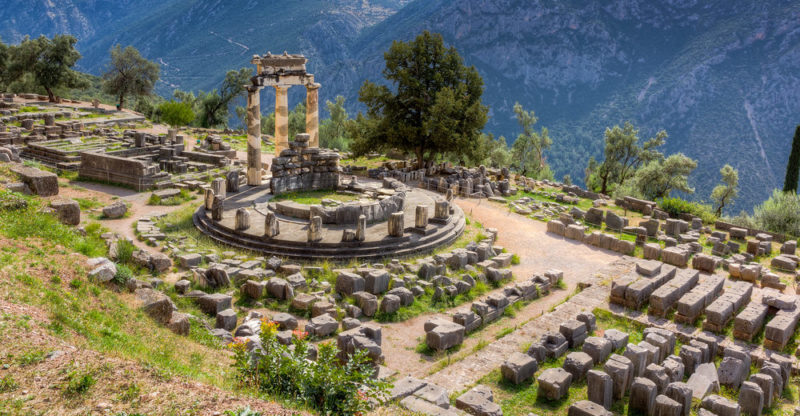 Socrates doubts everything , even those who were considered wise men of the time. His friend and wise Querefonte, went to the oracle of Delphi and asked him if there was someone wiser than Socrates. The fortune-teller of the oracle replied that "there was no one wiser in all of Athens." However, Socrates doubted the oracle.
Socrates doubts everything , even those who were considered wise men of the time. His friend and wise Querefonte, went to the oracle of Delphi and asked him if there was someone wiser than Socrates. The fortune-teller of the oracle replied that "there was no one wiser in all of Athens." However, Socrates doubted the oracle.The difference between the sages of the time and Socrates is that the sages believed themselves to be absolute sages with absolute knowledge, while Socrates could see their wisdom but also their ignorance . Hence his famous phrase “I only know that I know nothing”.
The concept of good and evil
For Socrates , vices are expressions of ignorance . On the other hand, all virtue is knowledge.
For this philosopher knowledge is fundamental since it is through this that the truth is accessed and for him, every person who possesses knowledge will act well. In other words, for Socrates , those who act badly do so out of ignorance and not out of malice . The human being is good by nature, only that he acts with evil due to ignorance of the truth.
-
word and writing
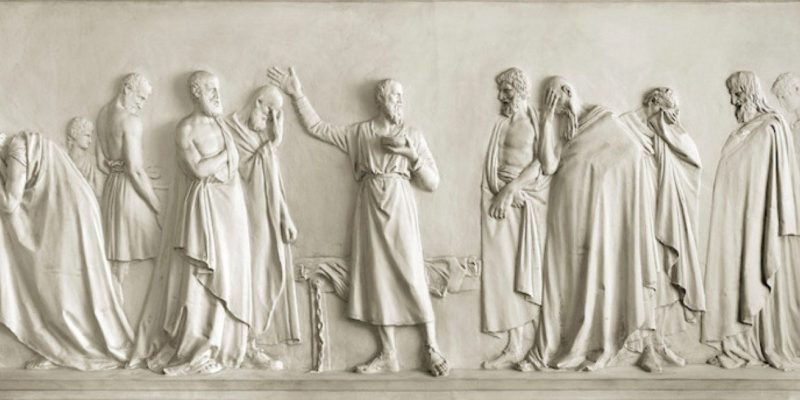 Socrates makes all his exhibitions or classes in public places and he does it orally. He does this because for him the discussion has more force in the field of orality in relation to the written word.
Socrates makes all his exhibitions or classes in public places and he does it orally. He does this because for him the discussion has more force in the field of orality in relation to the written word.On the other hand, it is understandable that, at that time, almost the entire Athenian people did not know how to read , therefore for him the word (oratory) will be conformed as a means of communication of radical importance to reach the knowledge of the truth.
knowledge and wisdom
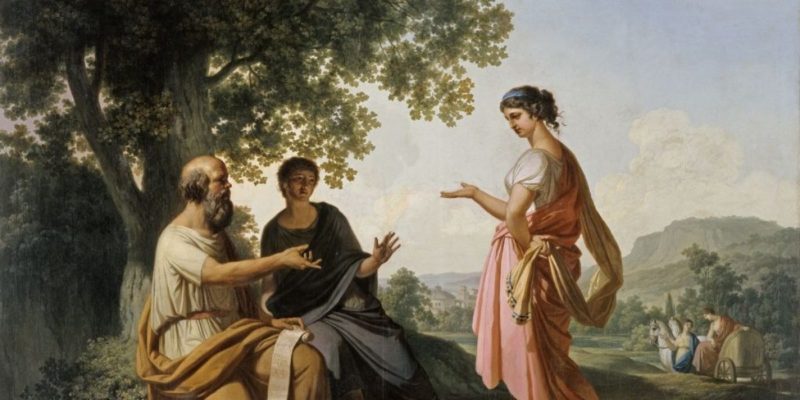
For this Athenian thinker, knowledge is not limited to its accumulation, but rather knowledge is, in part, what the subject brings with him and, starting from this knowledge, he can add new knowledge. But on the other hand, for Socrates, knowledge must fulfill and help in practical functions. If not, it is inert knowledge.
-
Socrates' method
In this way, it achieves a unity between thought and action , that is, between theory and practice or conduct.
Opposition to the wise men of the time
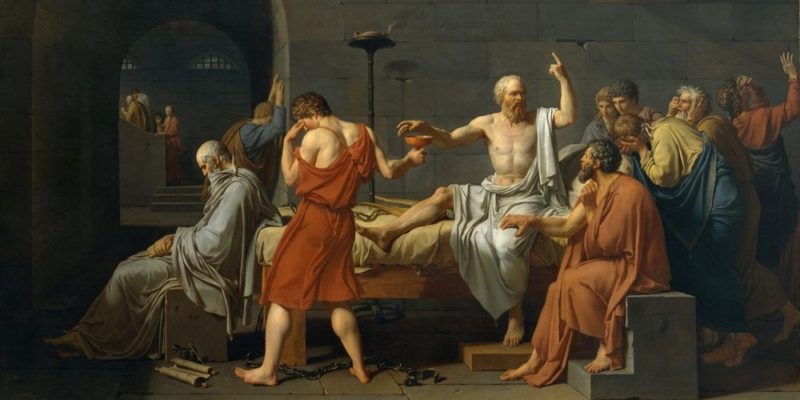
His critical thinking led him to the opposition of the wise men of that time . This made Socrates make several enemies.
One of the great themes through which Socrates wins many enemies is his religious thought. He was accused in 399 BC of introducing new gods and corrupting the morals of the youth. Although he denied this accusation, he was sentenced to death. He died at the age of 70 in the year 399 BC as a result of a trial that would accuse him and sentence him to death.
The above content published at Collaborative Research Group is for informational and educational purposes only and has been developed by referring reliable sources and recommendations from technology experts. We do not have any contact with official entities nor do we intend to replace the information that they emit.
MA student of the TransAtlantic Masters program at UNC-Chapel Hill. Political Science with a focus on European Studies. Expressed ideas are open to revision. He not only covers Technical articles but also has skills in the fields of SEO, graphics, web development and coding. .
Leave a reply
Your email address will not be published. Required fields are marked *Recent post

Sport: What Is It, Types, Risks, Features, Characteristics and Examples

Dogs: Emergence, Features, Characteristics, Feeding and Breeds

Story: Definition, Elements, Structure, Features and Characteristics

